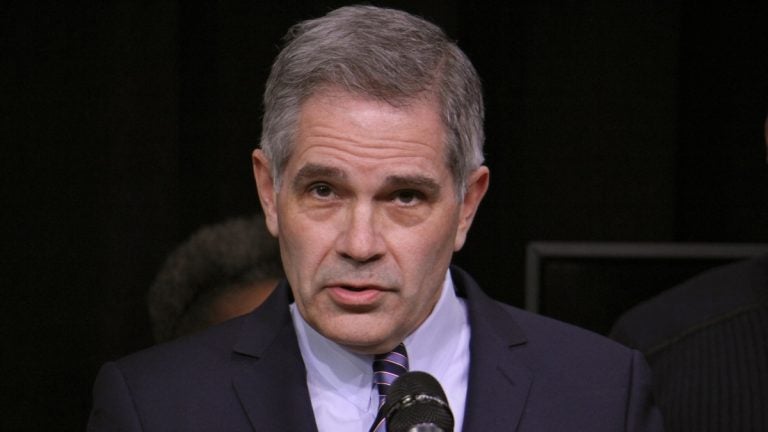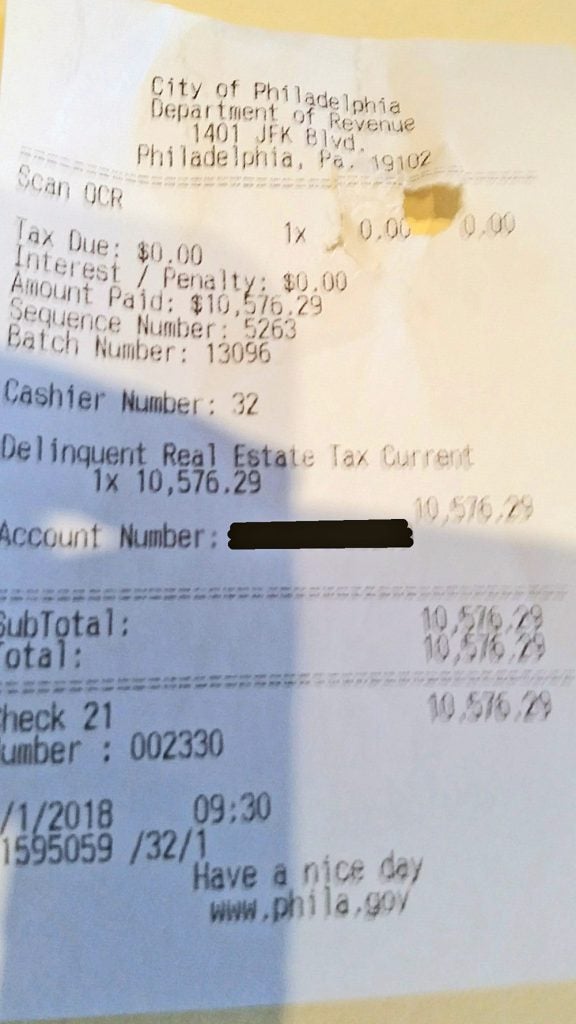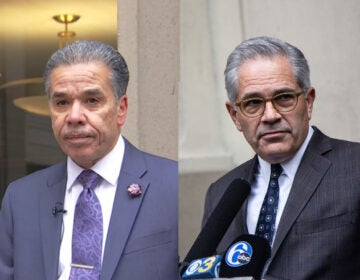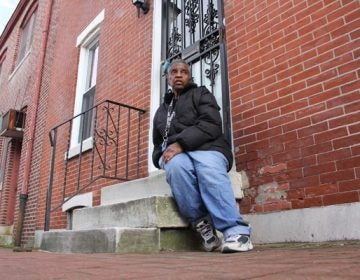Philly DA Krasner calls lien over unpaid taxes an ‘oversight’
Krasner, according to city records, ignored his 2017 tax bill so long that the Philadelphia Department of Revenue took him to court to recover some $10,000 in overdue taxes.

Philadelphia District Attorney Lawrence Krasner (Emma Lee/WHYY, file)
For Larry Krasner, 2017 was a busy year spent hopscotching around Philadelphia campaigning to be the city’s next district attorney on a progressive agenda aimed at radically shaking up the office. Then he beat out six Democratic rivals and one Republican to become the city’s top prosecutor. But along the way, some things fell through the cracks, like paying his property taxes.
Krasner, according to city records, ignored his 2017 tax bill so long that the Philadelphia Department of Revenue took him court to recover some $10,000 in overdue taxes.
When WHYY first contacted the District Attorney’s Office about the lien that was leveled against Krasner in Common Pleas Court this month by the city’s Revenue Department, spokesman Ben Waxman said Krasner assumed it was a mistake.
But Waxman soon after backpedaled from that initial assessment. And at 9:30 a.m. Thursday morning, Philadelphia’s district attorney went to the delinquent real estate tax collection section of the Revenue Department in the Municipal Services Building and paid $10,576.29.

“Larry [Krasner] mistakenly believed that he had paid his tax bill, and [that the] lien had been placed in error. When he discovered that was incorrect, he paid the entire balance of the tax bill immediately,” Waxman said. “He takes full responsibility for this mistake. It was his error and not that of anyone else, including his wife. He apologizes for the oversight.”
Revenue Department officials said Krasner received three warnings about the unpaid property taxes before the lien was placed against the district attorney and his wife, Common Pleas Judge Lisa Rau. In mid-2017, according to city officials, the delinquent tax was referred to a debt collection agency.
“This deserves some explanation,” said David Thornburgh, president of the government watchdog group Committee of Seventy. “We have to take as an article of faith that citizens should expect that public officials are current on their tax bills, and that they’re not working the system to their benefit because of their position.”
Waxman did not provide an explanation of how or why three notices about the unpaid property taxes were not enough to prompt the district attorney to act.
The tax debt was connected to the building that housed his now-shuttered private practice in Center City. After renovating the former law office, a quaint 19th-century brick building in Washington Square West, Krasner and Rau moved in.
A month before he was sworn in as district attorney, Krasner and his wife sold the Mt. Airy Dutch colonial house they had lived in since 1991 for $416,000, according to real estate records.
Waxman would not discuss why Krasner decided to move from Mt. Airy into the site of the district attorney’s former law practice.
Christopher Carr, a Doylestown-based lawyer who specializes in judgments and liens, said it is hard to believe the explanation Krasner has offered.
“This looks like non-payment of taxes plain and simple, not an oversight,” Carr said. “The fact that it was taken out against both of them is pretty damning.”
It is unlikely that financial hardship caused the real estate taxes to go unpaid. Both Krasner and Rau make sizable six-figure salaries. During his run to be district attorney, Krasner pumped about $25,000 of his own money into the campaign, most of which has been paid back.
Although there are still unanswered questions swirling around how Krasner found himself facing down tax debt, Thornburgh said when unpaid bills tail elected officials, it can cast a shadow in the eyes of the public.
“Voters want to have confidence that the public officials they elect are doing things for the right reason and without any entanglements like this,” he said
But Waxman insists that it was a simple misunderstanding, saying that it would not take a reporter’s inquires to spur the district attorney into paying this year’s bill: “He’s actually already paid his real estate taxes for 2018.”
WHYY is your source for fact-based, in-depth journalism and information. As a nonprofit organization, we rely on financial support from readers like you. Please give today.



